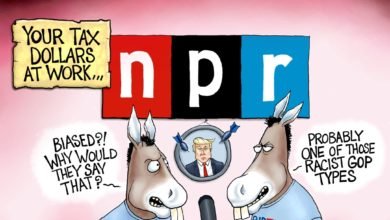What Is Section 230 and How Is It Different Than the First Amendment?
The ongoing negotiation by Elon Musk to purchase Twitter has reignited the debate around free speech on the Internet. In the US, the First Amendment and Section 230 of the Communications Act are central to this discourse.
People often conflate the two laws. As TechDirt’s Mike Masnik observes, “much of the time when people are complaining about Section 230 of the Communications Decency Act, what they’re really complaining about is the 1st Amendment.”
So, what’s the difference? Overall, Section 230 protects more online speech than the First Amendment, bolstering freedom of speech on the Internet.
To start, the First Amendment is part of the US Constitution. Adopted in 1791, the First Amendment is foundational US law.
The First Amendment states: “Congress shall make no law…abridging the freedom of speech.”
Notably, the prohibition against speech abridgement applies to the government, not private entities. The First Amendment prevents the government from interfering with free speech. The same is not true for private entities or individuals. For example, employers may limit what workers say on the job.
In Reno v. ACLU (1997), the Supreme Court applied the First Amendment to the Internet, finding “no basis for qualifying the level of First Amendment scrutiny that should be applied to this medium.” Translation: The First Amendment protects freedom of speech on the Internet from government interference, including the expressive conduct of websites and social media platforms.
Similar to newspapers, social media platforms exert editorial control over how they share or distribute content. The First Amendment protects this editorial discretion. In June 2021, a federal court invoked the First Amendment to block enforcement of a law in Florida that seeks to regulate how social media platforms moderate content
Similar litigation is currently underway in Texas. If the Texas case reaches the Supreme Court, which appears likely and potentially imminent, the decision will shape the future of free expression on the internet, ranking alongside Reno v. ACLU as one of the most impactful rulings in the history of the Internet.
While the First Amendment sets the baseline for free speech in the US, Congress can pass speech-enhancing statutes to add extra protection. This is where Section 230 comes into the picture — it’s a quintessential example of a pro-free-speech law.
Section 230 immunizes Internet services from liability for third-party content. In other words, Section 230 makes it difficult to sue Facebook for your uncle’s anti-mask posts.
Section 230 boasts several benefits which ultimately strengthen freedom of expression on the Internet. Overall, the law protects more online speech than the First Amendment.
Courts have applied Section 230 in an extremely wide variety of cases involving user-generated content, including claims of negligence, unfair competition, contract disputes, and many more. In each of these cases, Section 230 blocked liability for the hosting platform, protecting the speech at issue. In contrast, the First Amendment would have little to no impact on the majority of this litigation.
Section 230 also fully protects commercial speech; whereas the First Amendment distinguishes commercial speech from other forms and provides less protection. Lastly, Section 230 protects speech regardless of any wrongful or malicious intent by the speaker (known as “scienter” in legal jargon).
The First Amendment is a constitutional right which prohibits the government from interfering with the free speech of private individuals or entities, including social media platforms. Section 230 is a federal law that shields Internet companies and users from legal liability for hosting and sharing third-party content.
Although they overlap, Section 230 ultimately protects more online speech than the First Amendment.
As lawmakers continue to debate and consider changes to Section 230, they must weigh the benefits of these changes against the potential impact on internet speech.
Content syndicated from Fee.org (FEE) under Creative Commons license.
Agree/Disagree with the author(s)? Let them know in the comments below and be heard by 10’s of thousands of CDN readers each day!



